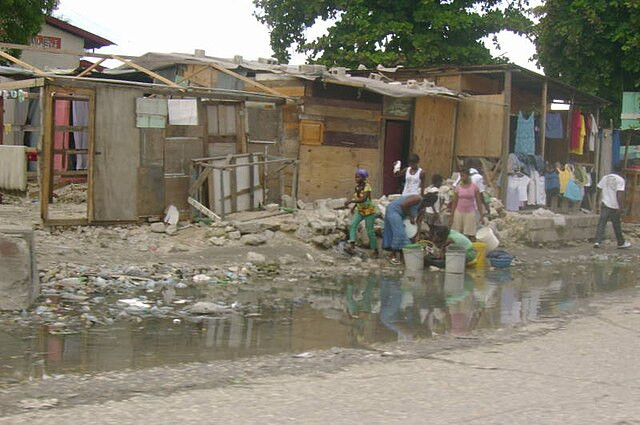In a stark illustration of the escalating crisis in Haiti's capital, more than 53,000 residents have fled Port-au-Prince in less than three weeks, largely due to the unrelenting gang violence that has gripped the city. The startling figure, released in a United Nations report on Tuesday, underscores the severity of the situation in the Caribbean nation.
According to the report by the U.N.'s International Organization for Migration (IOM), over 60% of those fleeing are seeking refuge in Haiti's rural southern region, a development that has U.N. officials deeply concerned. "Our humanitarian colleagues emphasized that these departments do not have sufficient infrastructure, and host communities do not have sufficient resources, to cope with the large number of people fleeing Port-au-Prince," stated U.N. spokesman Stephane Dujarric.
The exodus from the capital, which is home to some 3 million people, began in late February when powerful gangs launched a series of attacks on government institutions. Gunmen have set fire to police stations, opened fire on the main international airport, and stormed Haiti's two biggest prisons, releasing more than 4,000 inmates.
Earlier this week, the Université d'Etat d'Haïti (State University of Haiti) announced that it had been attacked, with its hospital and at least six classrooms on the Port-au-Prince campus destroyed, according to initial assessments. Armed groups have not only set fire to pharmacies and health clinics near the university hospital but have also turned the hospital into a fortified base, engaging in confrontations with the police, as stated by the university.
The violence has taken a heavy toll on the population, with more than 1,500 people reported killed up to March 22, and another 17,000 left homeless, according to the U.N.
Marjorie Michelle-Jean, a 42-year-old street vendor, is among the few trying to head north instead of south from the capital with her two children. "I want to see them alive," she said, explaining that stray bullets keep hitting the tin roof of their home. Despite two failed attempts to travel to her hometown of Mirebalais due to roadblocks, Michelle-Jean remains determined: "I will definitely try again. It's absolutely not safe in Port-au-Prince."
The U.N. report found that of the 53,125 people who fled Port-au-Prince from March 8-27, nearly 70% had already been forced to abandon their homes and were living with relatives or in crowded and unsanitary makeshift shelters across the capital. More than 90% of those leaving the capital have been crowding into buses, risking travel through gang-controlled territory where gang rapes have been reported and gunmen have been known to open fire on public transport.
The ongoing violence has forced Prime Minister Ariel Henry to announce his resignation once a transitional presidential council is created. Henry, who was in Kenya to push for the U.N.-backed deployment of a police force from the East African country when the attacks began, remains locked out of Haiti.
As the mass migration from Port-au-Prince is expected to continue, Gary Dorval, 29, who was among a handful of people joining a demonstration on Tuesday, expressed his determination to stay until a new government is installed: "I want to be part of the change."
The U.N. has warned that the arrival of tens of thousands of displaced people in rural areas poorly equipped to deal with the influx poses severe challenges. Most of those fleeing Port-au-Prince have headed south, to areas still recovering from the devastating 2021 earthquake that claimed more than 2,000 lives.
"It should be emphasized that [these] provinces do not have sufficient infrastructure and host communities do not have sufficient resources that can enable them to cope with these massive displacement flows coming from the capital," the IOM cautioned on Tuesday.




